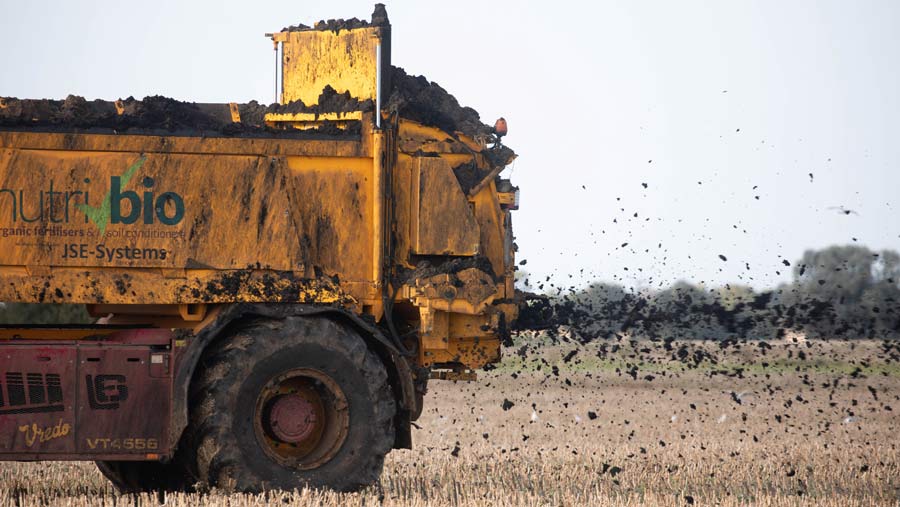Government faces legal action over sewage sludge on farmland
 © Tim Scrivener
© Tim Scrivener An environmental campaign group is taking legal action against the government, accusing it of axing its pledge to regulate microplastics and chemicals in sewage sludge spread over farmland.
Fighting Dirty, which comprises campaigners George Monbiot, Georgia Elliott-Smith and Steve Hynd, argues that the government reneged on its commitment to bring the regulation of sewage sludge into the Environmental Permitting Regime (EPR) by 2023.
See also: What farmers need to do to use sewage sludge safely
This would require treated sewage sludge, which is sold to farmers by water companies, to be tested for microplastics and chemicals before being applied to agricultural land as fertiliser.
In 2020, the Environment Agency (EA) published a strategy for Safe and Sustainable Sludge Use stating that regulations would be introduced by mid-2023, bringing testing and regulation of sludge into the EPR.
However, the 2023 deadline was removed from an updated version of the strategy published in August, with no alternative timescale introduced.
The change removes the 2023 deadline to introduce new legislation for the regulation of sludge, including to require stronger testing for the 3.5m tonnes of sludge that is spread on UK agricultural land as fertiliser every year.
In its application for judicial review, Fighting Dirty argues the EA, in making the decision to update the strategy, has failed to consider mandatory relevant factors and to make sufficient inquiries, and that its decision not to replace the target date is irrational.
Campaigner Georgia Elliot-Smith accused the EA and Defra secretary Therese Coffey of adopting a “do nothing” approach by removing the deadline for introducing regulations on the safe and sustainable use of sludge.
She said: “Farmers are unknowingly being sold potentially highly toxic material to spread on their land, poisoning our soil, watercourses and food, and we have no hope of a date when this situation will be resolved. It is unacceptable to be left in limbo like this.”
‘Threat to soils’
A report commissioned by the EA in 2017 found English crops contaminated with dangerous organic contaminants including dioxins, furans and polycyclic aromatic hydrocarbons at “levels that may present a risk to human health” and physical contaminants including plastics that could result in “soils becoming unsuitable for agriculture”.
An EA spokesman said: “As the responsible regulator in England for the supply, treatment, storage and use of sludge, the purpose of our strategy is to enable its safe and sustainable use on land.
“This ensures water companies meet their environmental obligations while contributing to clean and plentiful water and soil that is healthy and productive.”
